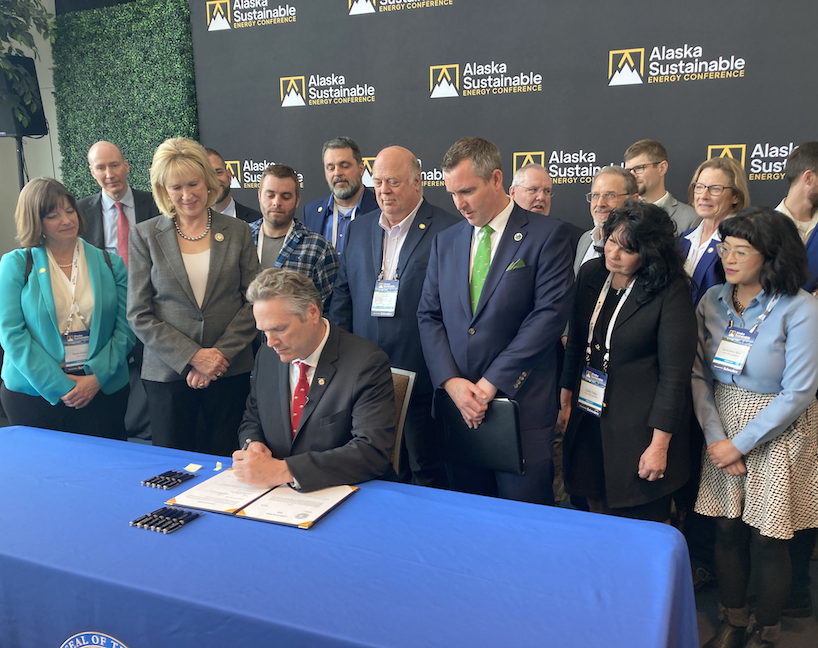Alaska Gov. Dunleavy signs bill allowing state land to be used for carbon-offset credits

Gov. Mike Dunleavy on Tuesday signed new legislation that allows the state of Alaska to use state land for carbon credits, purchased by companies to offset the greenhouse gases they emit.
Senate Bill 48, drafted by Dunleavy’s office and modified by the Alaska Legislature, passed through the Capitol with bipartisan support this spring; only Republican Reps. David Eastman of Wasilla and Sarah Vance of Homer voted against it.
Eighteen legislators stood behind Dunleavy as he signed the bill in a ceremony at the second Alaska Sustainable Energy Conference, taking place in Anchorage this week.
“Just like oil, just like gas, just like timber, this is a commodity that can be monetized now,” Dunleavy said Tuesday, adding that he expects the use of state land to generate revenue that could be spent on projects that reduce local energy prices.
The bill permits the state Department of Natural Resources to craft regulations that allow DNR to lease state land for up to 55 years to buyers who want to preserve the land’s ability to hold carbon dioxide, whether in uncut forests, undeveloped bogs, or undisturbed kelp.
Preliminary estimates, based in part by the experience of other states that have already undertaken similar projects, indicate that it will take several years before the first carbon-credits sale.
The state also has been unable to firmly estimate how much revenue may be raised.
“We’re going to work through the details and the process as we see interest,” Dunleavy said. “We’re going to keep the Alaska public informed, and we look forward to making Alaska a center for energy production, as well as innovation and creativity.”
Alaska Beacon is part of States Newsroom, a network of news bureaus supported by grants and a coalition of donors as a 501c(3) public charity. Alaska Beacon maintains editorial independence. Contact Editor Andrew Kitchenman for questions: [email protected]. Follow Alaska Beacon on Facebook and Twitter. You can read the original here.